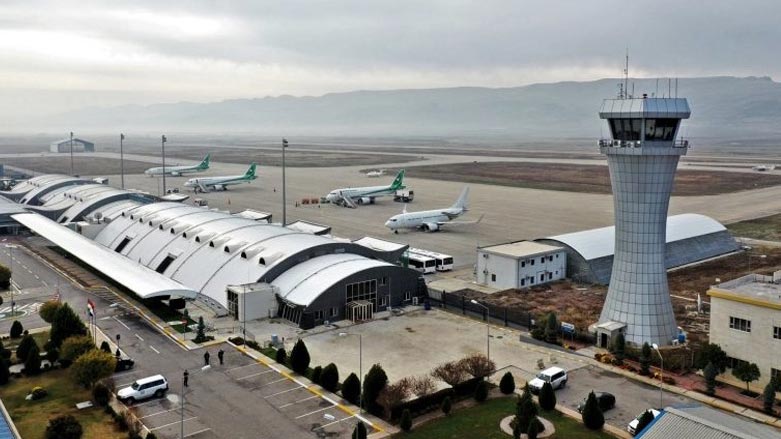German flights to Sulaimani also affected by Turkish flight ban

ERBIL (Kurdistan 24) – German flights to Sulaimani International Airport have also been affected by the Turkish flight ban.
Read More: Turkey confirms ban on Sulaimani flights until July
The Turkish Foreign Ministry on Wednesday confirmed that Turkey has banned flights to and from Sulaimania International Airport. The Turkish government claimed that the Sulaimani International Airport was infiltrated by the Kurdistan Workers’ Party (PKK).
The head of Sulaimani Tourism Offices and Companies Association, Ata Ahmed, told Kurdistan 24 on Thursday that Turkey also doesn’t allow planes from Germany to fly to Sulaimani through Turkish air space.
Sulaimani Governor Haval Abubakir told Kurdistan 24 that they have officially expressed their concern about the Turkish flight ban to the Turkish Consul General Mehmet Mevlut Yakut and have requested the reopening of Turkish airspace for Sulaimani flights.
As a result, flights from Germany to Sulaimani are affected, including Condor, which operates flights from Dusseldorf to Sulaimani. Also one flight from Iraqi Airways from Frankfurt to Sulaimani might be affected by the ban.
The governor of Sulaimani province, Haval Abu Bakr, told AFP in an interview that Sulaimani and its airport are secure, and called on Turkey to ‘revise’ its decision.
The Turkish ban on Sulaimani flights comes after a helicopter carrying Syrian Kurdish fighters flying to Sulaimani crashed in Duhok in late March, killing nine on board.
It is not the first time Turkey stopped flights to Sulaimani. Ankara also banned flights through its airspace to Sulaimani between 2017 and 2019, claiming the Patriotic Union of Kurdistan (PUK) supported the PKK.
“The PUK has to maintain a delicate balance between its relationship with the PKK and its affiliates, including its ties with the PMF (Popular Mobilization Forces), within which some PKK affiliates operate; and its relationship with Turkey and Iran,” Ranj Alaaldin, a foreign policy expert at the Middle East Council on Global Affairs told Kurdistan 24.
“That balance is disrupted as a consequence of cross-border factors emanating from the conflict in Syria, where the U.S. continues to back the PKK's sister organization, the YPG (People’s Protection Units), as well as internal politics within Kurdistan and the PKK's capacity to resist any attempt to suppress its movement and mobilization.”
